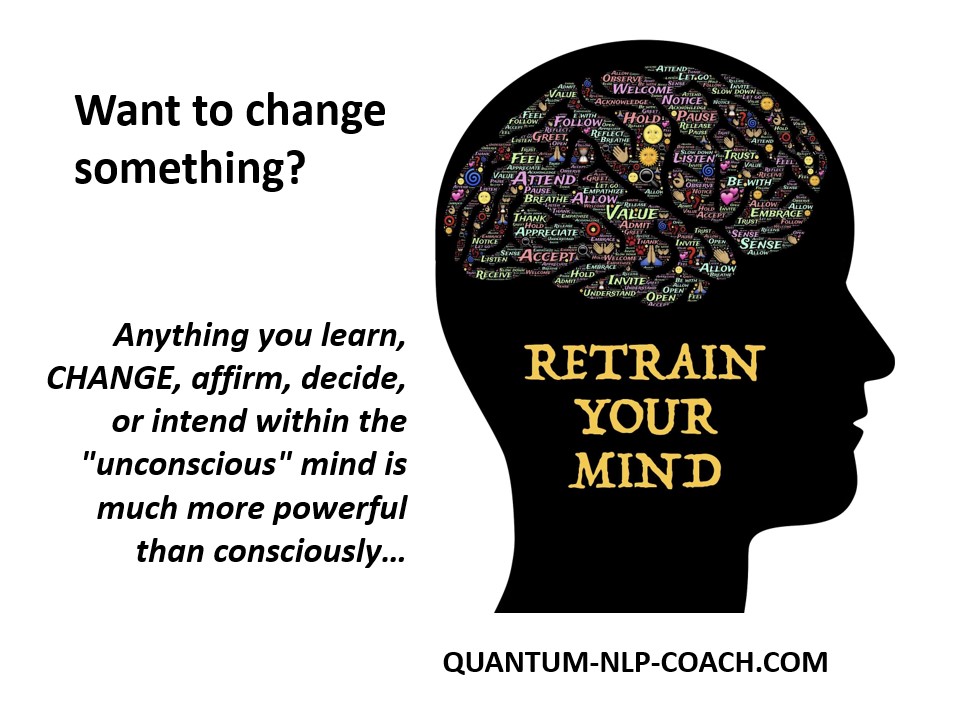Your Mind has Great Power… QST helps you use that in your favor.


Psychoneuroimmunology and the study of how the brain and central nervous system effects the immune system and health shows how hypnosis can be directly beneficial to your health. Ericksonian hypnosis helps you to relieve stress and other emotions repressed in the unconscious mind. Psychoneuroimmunology research shows that stress, and tension of repressed emotion can have negative impact on health. Hypnosis helps you to relax and deal with stress in a healthy way.
“Hypnotherapy can be an effective method for coping with stress and anxiety. In particular, hypnosis can reduce stress and anxiety before a medical procedure, such as a breast biopsy.
Hypnosis has been studied for other conditions, including:
– Mayo Clinic: https://www.mayoclinic.org/tests-procedures/hypnosis/about/pac-20394405
” Hypnotic states have been used for healing since humankind has existed, but because hypnosis can be misused for so-called entertainment and has been portrayed in the media as something mysterious and magical, supposedly out of the hypnotic subject’s control, it has been viewed with distrust and skepticism by many health professionals. However, recent advances in neuroscience have enabled us to begin to understand what might be happening when someone enters a hypnotic state,3–8 and evidence is building for the use of hypnosis as a useful tool to help patients and health professionals manage a variety of conditions, especially anxiety and pain.” – Article: What is hypnosis and how might it work? by: Ann Williamson, Journel: Palliat Care. 2019; 12: 1178224219826581. Link to Article: https://www.ncbi.nlm.nih.gov/pmc/articles/PMC6357291/
Hypnotherapy has been shown to be an effective pain remedy. Research and experiments indicate biochemical effects of Hypnotic Analgesia Suggestions, or in other words using Hypnotic Suggestions in Trance to trigger an Analgesic Effect. This means that it’s not only in the mind, but that biochemical response is actually triggered in the body releasing its own naturally produced “pain killers”. – Clinical Trial: J Pain Res. 2020 Sep 16;13:2297-2311. doi: 10.2147/JPR.S253747. eCollection 2020. Link to Article: https://pubmed.ncbi.nlm.nih.gov/32982393/
“Despite their high prevalence and advances in the field of neurogastroenterology, there remain few effective treatment options for functional gastrointestinal disorders (FGIDs). It is recognized that approximately 25% of sufferers will have symptoms refractory to existing therapies, causing significant adverse effects on quality of life and increased healthcare utilization and morbidity. Gut-focused hypnotherapy, when delivered by trained therapists, has been shown to be highly effective in severe refractory FGIDs.” – Gut-focused hypnotherapy for Functional Gastrointestinal Disorders: Evidence-base, practical aspects, and the Manchester Protocol, link to article: https://pubmed.ncbi.nlm.nih.gov/30815936/
Is Hypnotherapy for depression ACTUALLY more effective than prescription anti-depressants?! And, without the dangerous side effects of the drugs? You can consider the research and studies of Dr. Irving Kirsch.
“Antidepressants are supposed to work by fixing a chemical imbalance, specifically, a lack of serotonin in the brain. Indeed, their supposed effectiveness is the primary evidence for the chemical imbalance theory. But analyses of the published data and the unpublished data that were hidden by drug companies reveals that most (if not all) of the benefits are due to the placebo effect…” – Anti-depressants and the Placebo Effect https://www.ncbi.nlm.nih.gov/pmc/articles/PMC4172306/
“Dr Kirsch is Associate Director of the Program in Placebo Studies and lecturer in medicine at the Harvard Medical School and Beth Israel Deaconess Medical Center. He is also Professor Emeritus of Psychology at the University of Plymouth and the University of Hull in the UK and University of Connecticut in the US. He has published 10 books and more than 250 scientific journal articles and book chapters on placebo effects, antidepressant medication, hypnosis, and suggestion. He originated the concept of response expectancy. His meta-analyses on the efficacy of antidepressants were covered extensively in the international media and influenced official guidelines for the treatment of depression in the United Kingdom. His 2009 book, The Emperor’s New Drugs: Exploding the Antidepressant Myth, was shortlisted for the prestigious Mind Book of the Year award and was the topic of 60 Minutes segment on CBS and a 5-page cover story in Newsweek.” – from youtube video description…